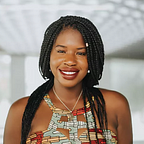Reimagining Education in Senegal: How Montessori Methods and Indigenous African Teaching Overlap
For centuries, Africa has been home to diverse and vibrant teaching methods that have helped children thrive and develop a strong sense of cultural identity. However, in recent years, many African communities have lost touch with these traditional approaches as Western education systems have been imposed on them.
As an educator and advocate for inclusive, culturally responsive education, I believe that it is time for African communities to reclaim their rich educational heritage. That’s why I have been exploring different teaching philosophies and pedagogies, and I believe hat Montessori education is one of the closest to African teaching methods.
At the heart of Montessori education is the belief that children are naturally curious and motivated to learn and should be given the freedom to explore their interests and abilities in a carefully prepared environment. Similarly, indigenous African teaching methods recognize the importance of learning through practical activities that are meaningful and relevant to children’s lives and communities.
Both Montessori education and indigenous African teaching methods value the role of the community in education. In Montessori education, the classroom is seen as a microcosm of society, with children learning critical social skills through collaboration and communication. Similarly, many indigenous African communities strongly emphasize learning within a community context, with elders, parents, and other community members playing important roles as teachers and mentors.
These similarities inspired us at Teach For Senegal to explore how Montessori methods could be adapted and integrated into local contexts to create high-quality, community-based early childhood education. We developed a fellowship program to train local young leaders to serve Montessori guides in communities throughout Northern Senegal.
Our first cohort of 23 fellows began their training last year, focusing on the principles and practices of Montessori education and the specific needs and contexts of their communities in northern Senegal. We worked closely with the fellows to adapt the Montessori materials and methods to local resources and cultures, using low-cost and locally sourced materials whenever possible.
One of the key strengths of our fellowship program is its focus on community-based learning. Fellows spend a significant portion of their training in local schools and communities, working closely with parents, elders, and other community members to understand their needs and aspirations for their children’s education. By engaging with the community in this way, our fellows can create Montessori classrooms responsive to local cultures, languages, and resources.
The result is a growing network of community-based Montessori schools across Senegal, led by passionate, locally trained educators who are deeply invested in their communities. Our fellows are creating safe, nurturing learning environments where children can explore, learn, and grow at their own pace, supported by caring and knowledgeable teachers.
As we move forward with our mission to reimagine education in Senegal, we are excited to continue working with local communities to expand our fellowship program and create more opportunities for high-quality early childhood education nationwide. We believe that combining the best Montessori education with indigenous African teaching methods and community-based learning can create a more equitable, inclusive, and culturally responsive education system for all Senegalese children.
The Power of Interdependence
We firmly believe that any organization or individual working alone cannot achieve true and lasting change. Rather, we must come together, pooling our collective strengths and resources to create a brighter future.
In addition to our work in Senegal, we partner with Nitte ( firmly known as Teach For The Gambia), a similar program in The Gambia. This partnership has allowed our fellows to learn and grow with other educators on the continent.
By working together and sharing our experiences and expertise, we can build a strong network of community-based educators who are committed to creating high-quality, culturally responsive early childhood education across West Africa. This collaboration also underscores the importance of interdependence and the power of collective action in creating lasting change.
We are proud to be part of this growing movement of educators and advocates who are reimagining education in Africa. We look forward to continuing to work together toward a brighter future for all children.
